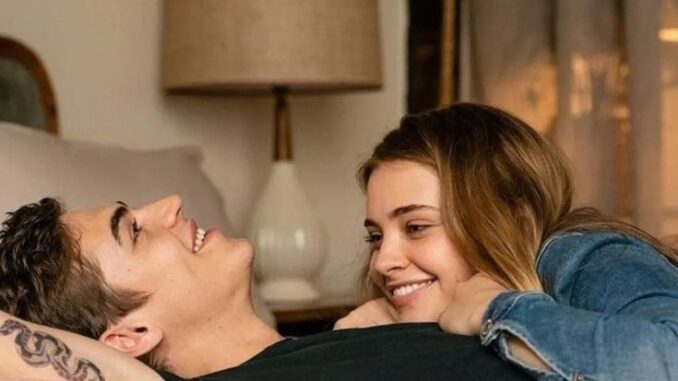
Hardin Scott is not your typical romantic lead.
He’s not the charming, smooth-talking prince who makes grand gestures and always says the right thing. He’s angry. He’s volatile. He says the wrong thing almost every time. And yet, from the moment he appeared on screen in the After series, audiences couldn’t look away.
In After We Fell, we see Hardin more vulnerable—and more dangerous—than ever before. At first glance, he seems the same: brooding, possessive, magnetic. But beneath that familiar scowl is a man breaking apart. His relationship with Tessa is crumbling. His past is catching up. And his identity—so long defined by rebellion and resistance—is being shattered by a truth he never saw coming.
The beauty of After We Fell lies in its unflinching exploration of Hardin’s trauma. We learn about his family secrets. We see the depth of his fear of abandonment. And for the first time, we realize: this isn’t just a “bad boy.” This is a broken boy trying to outrun the parts of himself he doesn’t understand.
Tessa’s love was always his anchor. But now, even that feels uncertain. And instead of clinging tighter, she begins to drift away. Hardin, unmoored, lashes out—not to hurt her, but to avoid facing the possibility that he may not be lovable at all.
This is what makes his character so compelling. Hardin’s pain is not an excuse. The film makes that clear. His behavior is often toxic, and the narrative doesn’t romanticize that. But it does explain it. It gives us the “why” without justifying the “how.” And in doing so, it invites us to witness a young man who desperately needs healing.
One of the most poignant scenes in the film isn’t a fight or a kiss—it’s when Hardin is alone. Silent. Shaking. Wrestling with the realization that the world isn’t out to get him—he just never learned how to live in it without armor. Hero Fiennes Tiffin, who plays Hardin, brings new depth to the role in this installment. His portrayal is less theatrical and more internalized. A glance, a hesitation, a clenched jaw—all speak louder than his words ever could. And while it’s easy to write Hardin off as yet another emotionally unavailable “bad boy,” After We Fell challenges us to look deeper. To understand that sometimes, the people who act like they need no one are the ones who fear being needed the most.
